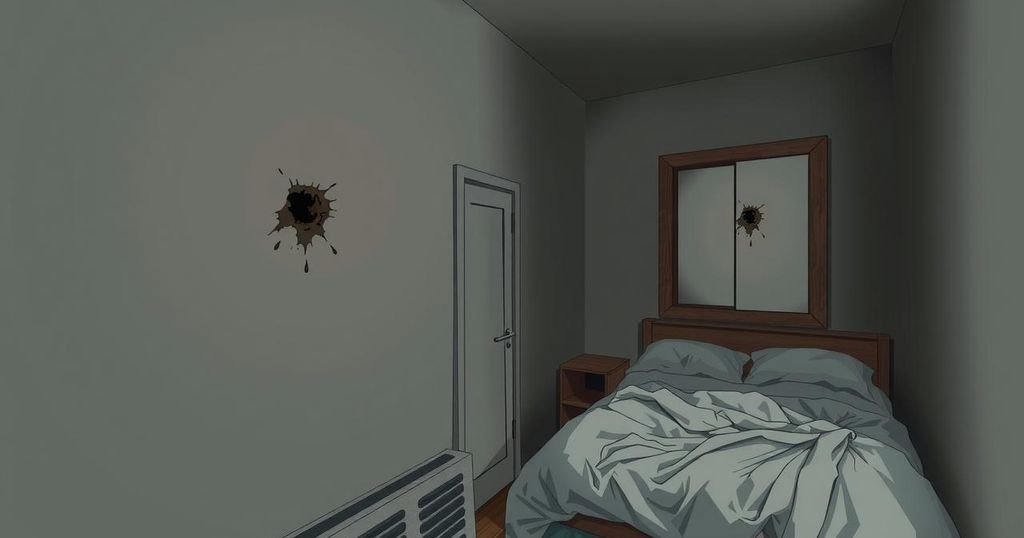South Africa’s Gang Warfare: The Victims Caught in the Crossfire in Cape Town

Gang violence in Cape Town continues to devastate the community, with tragic stories like that of four-year-old Davin Africa, a victim of crossfire. Despite police promises and government initiatives, the gang culture deeply rooted in the area complicates law enforcement efforts. Community leaders like Pastor Engel work tirelessly to mediate and rehabilitate gang members, aiming to shift mindsets and cultivate hope, but the ongoing violence poses significant challenges for residents.
In Cape Town, the brutal gang violence has left a community devastated. The latest victim, four-year-old Davin Africa, was shot in February during a shootout between rival gangs. His father, Devon, points to bullet holes in their home, a grim reminder of a tragedy that shattered their family. Shortly before Davin’s death, his older sister, Kelly, was also killed in gang violence. Their family is now left grieving, especially with only their youngest daughter remaining. “She asks me: ‘Where’s my brother?” says Undean, Davin’s mother.
The violence isn’t just a story of one family. It’s a widespread issue affecting many across the Cape Flats region, where policing promises have failed to provide safety. Statistics show that the Western Cape consistently reports the highest number of gang-related murders in South Africa. Although President Cyril Ramaphosa formed a special unit to tackle gang violence back in 2018, the situation remains dire. “There’s a whole history and generations of people who have been born into these gangs,” notes Gareth Newham, head of the Justice and Violence Prevention programme at the Institute for Security Studies in Johannesburg.
The gang culture is deeply woven into the fabric of the community. It emerged partly from the neglect during apartheid, and gangs now provide resources that the state doesn’t. They supply everything from food and money for utilities to even school fees. Hence, they’ve become community fixtures, complicating law enforcement efforts. Gangs often use civilian houses for their operations, making it tough for police to dismantle them.
On a slightly different front, Pastor Craven Engel in Hanover Park is working hard to ease tensions between rival factions. With daily shootings, Pastor Engel knows he has to act fast, using a formula of detection, interruption, and changing mindsets to tackle the drug-fueled gang warfare. He claims that the community’s resources stem largely from the drug culture. “The bulk of the economy comes out of the drug culture,” he explains.
As a pastor, Engel insists that apartheid’s legacy has left scars that continue to affect the residents. He estimates that about 70% of children in the area struggle with some form of addiction, leading to a cycle of crime and violence. But for Pastor Engel, just arresting gang members doesn’t solve the issue. “They will go to prison but then get replaced by younger members,” he says. This leads to an uptick in violence, posing a bigger challenge for communities.
Engel remains persistent, actively seeking ceasefires between warring gangs, although these efforts are often met with sabotage. He recently spoke with a gang leader, who asserts that the cycle of violence continues to be a part of their reality—”The more we kill, the more ground we seize,” he says. Meanwhile, Pastor Engel works to rehabilitate previous gang members, aiming to replace violence with peace. One of these individuals, Fernando “Nando” Johnston, seeks help to leave gang life behind, stating he wants to change his path.
Engel, who runs a donation-funded rehabilitation program, encourages Nando, saying, “You can now start building yourself up again.” Nando’s mother hopes this opportunity leads him to a better life. A couple of weeks into the program, there’s hope—Nando is doing well in his rehabilitation and reconnecting with his family.
Still, hope seems like a rare commodity amidst ongoing violence. Back at Devon Africa’s home, the persistent threat of retaliation and gang activity looms large. Residents often feel trapped between rival gangs and an untrustworthy police force. As Newham points out, many community members are wary of calling the police, doubting their willingness or ability to help.
Pastor Engel reiterates the need for self-reliance, emphasizing that outside help is unlikely. “Nobody is going to come from anywhere to help or save us,” he remarks. The onus now rests on individuals within these communities to create the resilience and hope needed to thrive in a fractured landscape.
The gang warfare in Cape Town has created an environment of fear and loss, as seen through the tragic stories of families like the Africas. Despite government promises and police efforts, the issue seems too entrenched for quick solutions. There are efforts to mediate and create hope, like that of Pastor Engel’s rehabilitative work, but as violence persists, the community remains caught in an almost insurmountable cycle of conflict and despair. It’s clear that real change will take time and substantial effort from within the community itself, as they seek to reclaim peace.
Original Source: www.bbc.com







